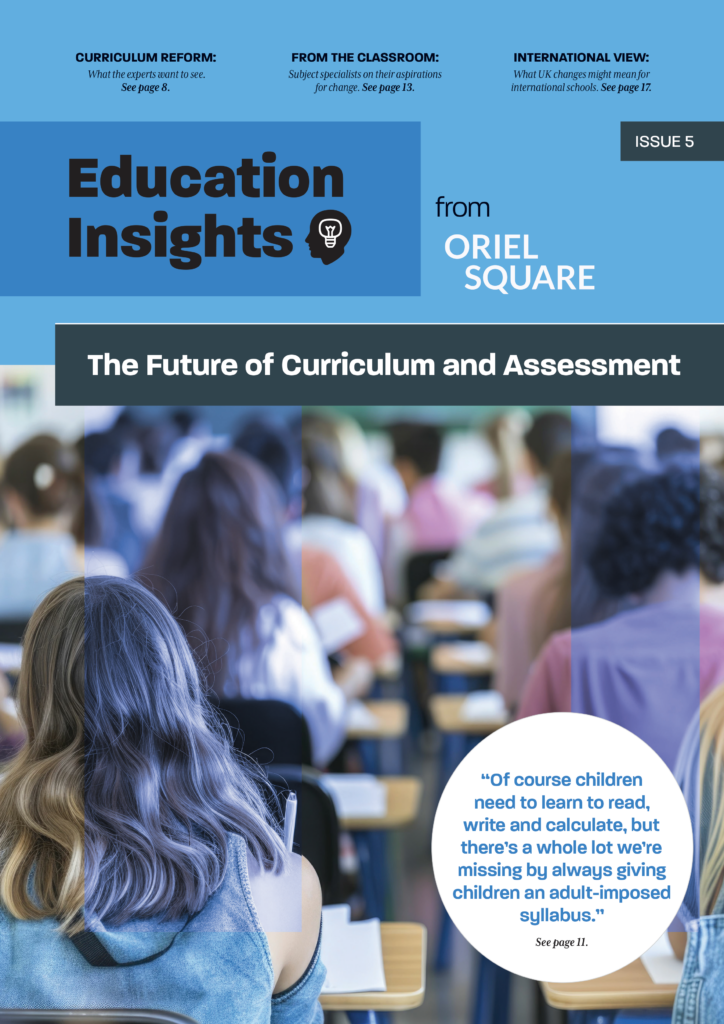This is an extract from Education Insights, Issue 5: The Future of Curriculum and Assessment. Subscribe to read the articles in full and unlock access to our quarterly insights reports.
subscribe nowWith views from across education stages and phases,and a mix of industry, educator, student and researcher perspectives, here are five things on the experts’ wishlists.
Reform early years assessment criteria
More weight should be given to ‘prime areas of early years learning’ like regulatory skills, relationship building, listening and attention, and speaking and vocabulary. These are often not tracked beyond year 1 but ‘are critical to building self-esteem and resilience into later key stages’, says nursery headteacher Molly Devlin of Ark Start. Subscribe to read more on early years.
Prioritise play-based learning at primary
There’s a whole lot we’re missing by giving children an adult-imposed syllabus’, says primary headteacher Tina Farr. The national curriculum should be supporting and encouraging teachers to teach in ‘a play-based way’, in line with neuroscience-based guidelines. Subscribe to read more about a play-based primary curriculum.
Commit to a ‘broader curriculum’
‘The introduction of the Ebacc and Progress 8 scores has made schools overly focused on teaching core subjects at the expense of others’, says BESA’s Policy Manager, Peter Doyle. He hopes to see more investment – of both time and money – in subjects such as design and technology, music and art. Subscribe to read more about BESA’s industry view on curriculum and assessment change.
Give busy teachers clarity on approaches to teaching reading
‘The English national curriculum contains valuable content, but its breadth can make it difficult for busy teachers to implement’, says Debbie Thomas, researcher in Reading for Pleasure at the Open University. ‘Teachers are bombarded by conflicting demands from different parts of the education system, and need clarity on developing young readers day-to-day.’ Subscribe to read more about Debbie’s research on Reading for Pleasure.
Weave sustainability throughout the curriculum
‘The education system routinely prepares young people to take action against the planet, not for it’, says Jamie Agombar, Executive Director of Students Organising for Sustainability UK. Their ambition to ‘liberate sustainability from subject silos’ is shared by Paul Turner from the teacher collective, Ministry of Eco-Education: ‘Sustainability isn’t a list of facts to be taught in discrete subjects; it’s a green thread which runs through the curriculum.’ Subscribe to read more on a greener curriculum.
Subscribe to keep reading and unlock full access to our insights reports.


